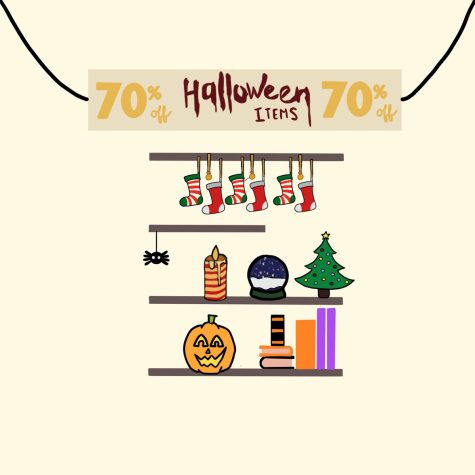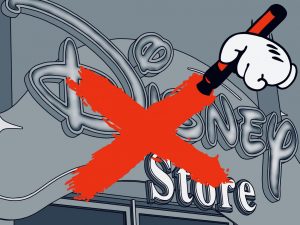Opinion: “Christmas Creep” creeps its way to take a toll on one’s mental health
Although “Christmas creep” and holiday music bring forth the holiday cheer early on in the year, these marketing strategies have proven to cause stress and panic for some people.
November 1, 2022
It is a week before Halloween and you burst into a retail store to do some last minute Halloween shopping. However, you see that the shelves designated to Halloween decorations do not have anything Halloween-themed on them. Instead, they are filled with Christmas decorations.
This chain of events accurately depicts what I saw at some local retail stores. Even though I was excited to see the holiday products, I wondered why these stores were selling these products two months before the holiday season when they could have started selling them from the end of November or the beginning of December.
The answer to this is that retail stores use the “Christmas creep” marketing strategy, which gives, “the sense that the holiday season is gradually lengthening, beginning earlier each year, typically in early fall.”
“Christmas creep” is not a new business strategy in the retail industry. According to an interview with BBC, Ana Serafin Smith, the senior director of media relations at the National Retail Federation, says that early advertisements like “Christmas creep” have been around since the late 19th century, but “the volume of [them have] vastly increased [over time].”
“Christmas creep” has also racked up more sales for retail stores. Early advertising has shown a “$6.50 per person boost in holiday spending… [meaning that] holiday spending is elastic to some degree – even with our set lists of gifts and recipients, [people] are willing to spend a little bit more [money], given a little more time.”

Although “Christmas creep” has been beneficial for retail stores, they have proven otherwise for customers. In a study that professor Kit Yarrow of Golden Gate University conducted, “people had extreme reactions, including anger and panic, to seeing Christmas trees before Halloween.”
Moreover, retail stores play holiday-themed music starting from Nov. 1, the day after Halloween, as a part of the “Christmas creep” marketing tool. While holiday-themed songs like Mariah Carey’s “All I Want For Christmas Is You” put most people in the holiday spirit, these types of songs take a mental toll on some people. Holiday-themed songs can trigger feelings of stress, and psychologist Linda Blair explains that, “hearing a Christmas song can spark thoughts of all the things [one has] to do before the holiday, like shopping, party planning and traveling.”
Playing holiday-themed music earlier than the holiday season can also lower productivity rates in workplaces. According to the 2011 Consumer Reports survey, 23% of Americans do not like holiday music for this reason. Though this type of music diverts the attention of employees, Blair states that employees “tune out” the music by spending all their energy trying not to hear what they’re hearing in order to be able to focus on their work.
Despite the fact that “Christmas creep” brings the holiday cheer to people earlier than usual through products and music, some customers become stressed because their brains become “oversaturated” due to worries about money, work or seeing family during the holidays. Bringing the holiday festivities earlier in the year goes to show that the marketing technique of “Christmas creep” marks as an uncanny reminder for people to prepare for the holiday season. So the next time you see holiday products on the Halloween shelves at retail stores, consider the beneficial and detrimental effects “Christmas creep” has on customers.














